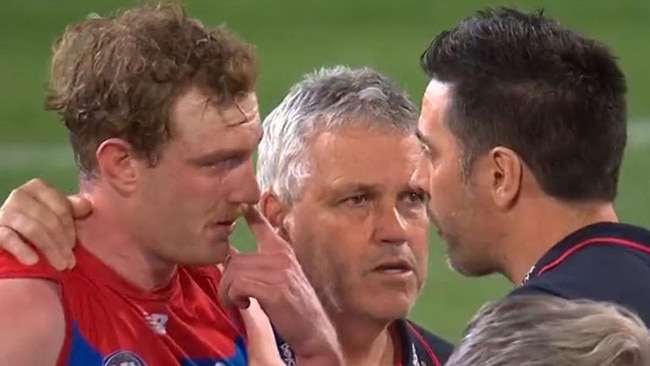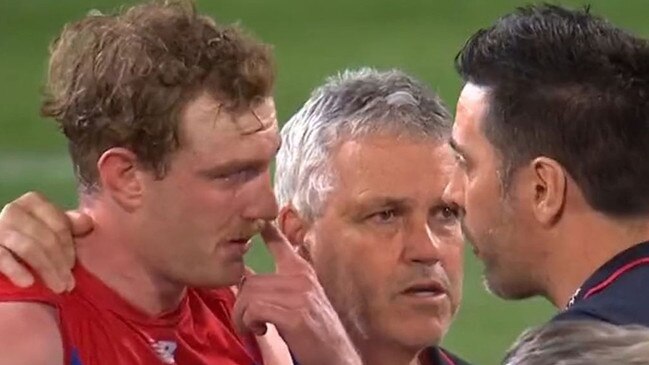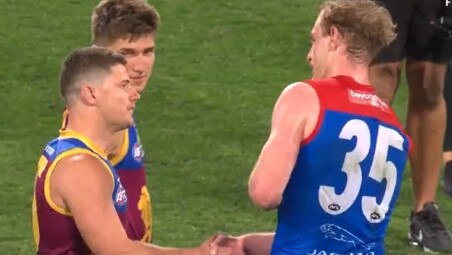Patrick Carlyon: Shame for sportspeople to be cowed into robotic silence
What the Lions’ Dayne Zorko thought to say to Melbourne’s Harrison Petty during a game wasn’t funny, but it was the scandalised response to his sledge that was most noteworthy.

Patrick Carlyon
Don't miss out on the headlines from Patrick Carlyon. Followed categories will be added to My News.
The best sporting sledges are rightly celebrated. Yes, they may be low-rent put-downs, which often invoke the morals of an innocent third party, but they do set off giggles in the fire of competition.
A tale of bowler Glenn McGrath, edited for taste, illustrates this effect. When McGrath asked a Zimbabwean cricketer why he was fat, the cricketer replied that McGrath’s partner had fed him too many biscuits.
What the Lions’ Dayne Zorko was thought to say to Melbourne’s Harrison Petty on the weekend wasn’t very funny.
But nor was it unusual; as a teenager, playing seniors’ cricket, my loved ones were constantly cited by older opposition players.
Yet it appears this sort of lame chatter cannot be tolerated anymore. It’s not the sledge, so much as the scandalised response to the sledge, which makes the Zorko episode noteworthy.

“I hope your mother dies,” was his reported line, which admittedly should never be said at a barbecue, the office or in the pub. For this, Zorko was anointed as public enemy No. 1, a worthy stand-in for Nick Kyrgios, who once told an opponent that a mate had slept with the opponent’s partner.
Zorko’s was a “vile slur”. He needed to be punished, officially, but he also had to be shamed in the blur of furious hand-wringing which follows any football incident not related to the game itself.
So there was an apology. Zorko was “remorseful” for acting “inappropriately”, and would strive to be a “better leader”.
By Monday, the story had moved to the culprit’s mental health. Now lathered in sanctimony, and baked in judgment, Zorko had spent the weekend “working through it”.
But why? Worse things are said on sporting fields. Zorko hadn’t racially vilified anyone. He hadn’t crashed through an opponent’s jaw.

His sledge seemed random, and crude, a cheapie plucked from the reptilian part of the brain. It aimed to unsettle. If Zorko had “crossed a line”, as the chorus concluded, where is this line?
Can you call an opponent overweight, or refer to their balding head, or just explain to them that they really aren’t very good?
Can you razz them as they shoot for goal by questioning their looks or querying their mental faculties?
Must we toss out the good to protect from the bad? For it would be a pity if sportspeople are to be cowed into a robotic silence because any in-play banter stands to be assessed as a defining measure of their character.
Patrick Carlyon is the Herald Sun opinion editor



